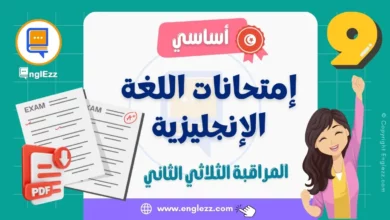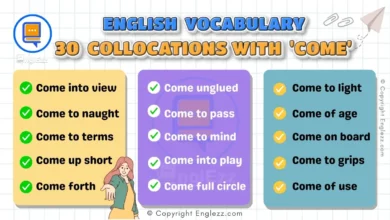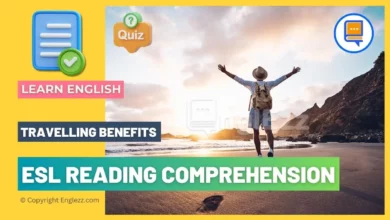In the intricate symphony of education, where communication is key, listening skills stand out as the virtuoso player, conducting harmony and understanding. The art of active listening transcends mere hearing; it encompasses interpreting, analyzing, and empathizing, laying the foundation for meaningful connections and lifelong learning. In this article, we explore how to use technology to enhance listening skills. From interactive language learning apps that simulate real-life conversations to AI-powered transcription services that highlight key points in speech patterns, the opportunities for utilizing technology to sharpen one’s listening acumen are vast and promising.
As educators, parents, students, and educational technology enthusiasts delve into this melodic journey of skill refinement, technology emerges not merely as a supporting instrument but as a transformative catalyst in honing these invaluable abilities.
Table of Contents
- How To Use Technology To Enhance Listening Skills
- Tech Tools for Developing Listening Skills
- Virtual Reality (VR) Applications for Enhanced Listening
- Interactive Online Platforms for Audio-Based Learning
- Podcasts: The Modern Learning Aid
- Innovative Classroom Technologies Empowering Listening Skills
- Revolutionizing Listening Skills with Technology: Embracing a New Era of Learning
- FAQs:
- Q: How can I incorporate podcasts into my daily routine to improve my listening skills?
- Q: What are some examples of innovative classroom technologies that can enhance listening skills?
- Q: Are there any language apps specifically designed for advanced learners looking to fine-tune their auditory comprehension?
- Q: How do VR applications provide a unique advantage in developing listening skills compared to traditional methods?
- Q: Can online dictation tools help individuals at different proficiency levels enhance their overall command of a language’s spoken aspects?
How To Use Technology To Enhance Listening Skills
Amidst the ever-evolving landscape of education, the dynamic duo of technology and teaching intertwine to revolutionize traditional approaches. Technology’s role in enhancing listening skills transcends conventional boundaries by infusing interactive elements into auditory experiences. From language apps that tune ears to diverse accents to immersive virtual reality simulations that transport learners to captivating scenarios ripe with auditory nuances, these tech tools amplify engagement and deepen comprehension levels like never before.

Recognizing technology not just as a medium but a muse for innovation opens doors to endless possibilities in enriching how we listen, learn, and communicate effectively in an interconnected world pulsating with information-driven rhythms. Join us on this enchanting voyage as we explore how cutting-edge tech tools orchestrate a synesthetic symphony of enhanced listening skills.
Tech Tools for Developing Listening Skills
When it comes to refining listening skills, utilizing technology can be a game-changer. Language apps, such as Duolingo and Rosetta Stone, not only enhance vocabulary but also provide interactive exercises that improve listening comprehension. These apps offer a blend of visual and auditory stimuli, engaging users through language practice in real-life contexts.
Additionally, podcasts have emerged as a potent tool for sharpening listening abilities. From TED Talks to educational series like “Stuff You Should Know,” podcasts cover a myriad of topics, enabling listeners to tune in to conversations and monologues that support their learning goals while exposing them to diverse accents and speech patterns.
Online dictation tools like Google Docs’ voice typing feature transform spoken words into written text, offering learners the opportunity to compare what they heard with the transcribed version—a method that reinforces auditory processing skills. The versatility of these tech tools lies in their ability to cater to various learning styles and preferences. Not only do they adapt content according to individual progress, but they also infuse elements of gamification and interactivity into the learning process, making it more engaging and enjoyable for users seeking to refine their listening prowess.
Incorporating these tech tools into educational settings can revolutionize how listening skills are honed. By creating an immersive learning experience that transcends traditional teaching methods, language apps, podcasts, and online dictation tools empower learners by providing tailored audio-based content that matches their proficiency levels. Whether used in classrooms or for self-guided study sessions, these innovative resources are designed to boost listening comprehension effectively while fostering a love for lifelong learning through dynamic engagement with the material.
Virtual Reality (VR) Applications for Enhanced Listening
When it comes to how to use technology to enhance listening skills, Virtual Reality (VR) applications emerge as powerful tools in modern education. By immersing students in virtual environments, VR offers a unique opportunity to enhance their listening abilities through realistic simulations. Imagine students exploring bustling marketplaces, serene nature reserves, or historical speeches—all designed to fine-tune their auditory processing skills. These immersive experiences not only captivate learners but also provide them with a multisensory learning experience that fosters deep engagement with the content.
Tools like Otter.ai and Google Docs Voice Typing can transcribe audio in real-time. This allows you to review and analyze spoken content, helping you better understand the nuances of speech and improve comprehension.
Moreover, VR simulations have the incredible capability to recreate real-life scenarios, allowing students to develop crucial listening skills in a safe and controlled environment. For example, language learners can participate in virtual conversations with native speakers to improve their comprehension and pronunciation. This interactive approach helps bridge the gap between theoretical knowledge and practical application, making the learning process more dynamic and effective. By leveraging VR technology, educators can transform traditional listening practice into memorable experiences that leave a lasting impact on students’ proficiency.
The benefits of integrating VR into listening practice sessions extend beyond engagement and immersion. By offering personalized feedback and adaptive challenges based on individual progress, VR applications cater to diverse learning styles and paces. Students receive instant responses to their actions, identifying areas for improvement and providing targeted support where needed. This ability to tailor the learning experience enhances student motivation and ensures that each learner receives customized training to optimize their listening skills development. In essence, VR applications unlock a world of possibilities for educators seeking innovative methods to nurture strong listening skills in their students.
Interactive Online Platforms for Audio-Based Learning
In today’s digital age, interactive online platforms have emerged as powerful tools for enhancing listening skills through audio-based learning activities. These platforms offer a dynamic and engaging approach to honing one’s ability to comprehend spoken language effectively. By incorporating features like quizzes, audiobooks, and voice recognition functionalities, these platforms create immersive learning experiences that actively promote listening aptitude.
For instance, platforms like Duolingo and Rosetta Stone utilize voice recognition to assess users’ pronunciation and understanding of foreign languages in real time. This immediate feedback not only reinforces correct listening comprehension but also encourages learners to improve their auditory skills continuously. Additionally, audiobook services such as Audible provide a vast library of narrated books across genres, allowing individuals to engage with rich, spoken content while developing their listening capabilities.
Moreover, the integration of real-time feedback mechanisms on these online platforms plays a pivotal role in enhancing overall listening proficiency. Services like Babbel offer interactive exercises where users listen to dialogue and respond accordingly, receiving instant corrections and guidance during the process. This instantaneous feedback loop not only supports active listening but also enables learners to fine-tune their comprehension abilities efficiently.
Apps like Duolingo and Babbel provide interactive exercises and dialogues to help you practice listening to different accents and speech patterns. The repetition and interactive nature of these apps can significantly improve your listening skills.
By harnessing the potential of these interactive online platforms tailored for audio-based learning activities, individuals can immerse themselves in engaging experiences that foster improved listening skills effectively. The combination of quizzes, audiobooks, voice recognition features, and real-time feedback mechanisms creates a conducive environment for enhancing auditory processing abilities in an interactive and stimulating manner.
Podcasts: The Modern Learning Aid
Podcasts have emerged as a dynamic tool for enhancing listening skills and promoting language development. By tuning in to a wide range of podcast genres, students can expose themselves to diverse accents, tones, and pacing, thereby honing their auditory discrimination abilities. For instance, language learners can benefit from listening to podcasts that feature native speakers conversing naturally in the target language. This exposure not only helps improve comprehension but also familiarizes students with colloquial expressions and cultural nuances.

One compelling aspect of podcasts is their ability to cater to various learning styles and preferences. Whether an individual prefers storytelling, interviews, debates, or informational content, there is a podcast genre tailored to meet those needs. For auditory learners, podcasts provide an immersive experience that engages their sense of hearing effectively. Moreover, the flexibility of podcast consumption allows students to listen at their own pace, replay segments for better understanding, or multitask while absorbing valuable information – a key benefit for busy learners seeking convenient ways to enhance their listening skills.
Furthermore, podcasts serve as an authentic resource for exposing listeners to real-life conversations and discussions. This exposure bridges the gap between academic language instruction and practical use in everyday communication scenarios. Students listening to industry-specific podcasts can gain insights into professional terminology and conventions relevant to their fields of study or interests. Overall, by incorporating podcasts into educational settings or personal learning routines, individuals can engage in self-paced exploration of topics they find intriguing while sharpening their auditory processing abilities in an enjoyable and accessible manner.
Innovative Classroom Technologies Empowering Listening Skills
The landscape of education is constantly evolving with the integration of cutting-edge classroom technologies that are revolutionizing how students develop their listening skills. Smart devices, such as interactive whiteboards and tablets, enhance engagement by offering multimedia content tailored to auditory learning styles. These devices enable educators to create dynamic audiovisual lessons that captivate students’ attention while sharpening their ability to listen actively.
AI tutors represent a groundbreaking advancement in personalized instruction, providing students with individualized feedback and adaptive learning pathways to improve their listening comprehension effectively. These digital tutors analyze students’ responses during listening exercises, identifying areas for improvement and offering targeted support in real-time. By tailoring the learning experience to each student’s unique needs and pacing, AI tutors ensure that listening skills are honed efficiently and comprehensively.
Actively listening to podcasts and audiobooks on a variety of topics can expose you to different voices, accents, and speaking styles. Start with content that interests you and gradually increase the difficulty level to continuously challenge your listening skills.
Moreover, speech recognition software has emerged as a game-changer in fostering listening proficiency by enabling students to engage in interactive language practice. Through voice-activated exercises and simulations, learners can refine their pronunciation, comprehension, and conversational skills in a simulated dialogue environment.
This technology not only enhances listening abilities but also builds confidence in verbal communication through instant feedback on pronunciation accuracy and language fluency. Adaptive learning tools like these contribute significantly to creating a more inclusive educational environment where every student can excel at their pace while receiving personalized support tailored to their specific learning goals.
Revolutionizing Listening Skills with Technology: Embracing a New Era of Learning
In conclusion, the marriage of technology and education has opened doors to unprecedented possibilities for enhancing listening skills. By exploring various tech tools tailored for improving listening comprehension, diving into the immersive world of Virtual Reality applications, engaging with interactive platforms designed for audio-based learning activities, harnessing the power of podcasts as modern learning aids, and incorporating cutting-edge classroom technologies, educators, parents, students, and educational technology enthusiasts can embark on a transformative journey toward mastering this essential skill.

The key lies not just in embracing these innovations but also in leveraging them effectively to create rich and dynamic learning experiences that inspire curiosity and foster a love for continuous growth.
As we navigate the ever-changing landscapes of education, it becomes evident that listening is not merely hearing but truly understanding and internalizing information. By utilizing technology as a powerful ally in this quest for enhanced listening skills, we equip ourselves with an arsenal of resources that cater to diverse learning styles and preferences. Whether through virtual simulations that transport us to new auditory realms or interactive platforms that challenge us to actively engage with content, the opportunities are boundless.
So let us embrace this digital revolution with open arms and open minds, knowing that every click, tap, or swipe brings us closer to becoming adept listeners who are ready to conquer the multifaceted demands of our fast-evolving world.
FAQs:
Q: How can I incorporate podcasts into my daily routine to improve my listening skills?
A: You can start by identifying podcast genres that align with your interests or areas you wish to develop. Listen during your commute, workouts, or downtime to make the most of your day while sharpening your listening abilities.
Q: What are some examples of innovative classroom technologies that can enhance listening skills?
A: Smart devices like tablets offer personalized instruction; AI tutors provide immediate feedback based on performance; speech recognition software helps refine pronunciation – all contributing significantly to improved listening proficiency.
Q: Are there any language apps specifically designed for advanced learners looking to fine-tune their auditory comprehension?
A: Yes! There are advanced language apps equipped with challenging exercises targeting high-level listening comprehension skills—perfect for those seeking more nuanced practice opportunities.
Q: How do VR applications provide a unique advantage in developing listening skills compared to traditional methods?
A: VR applications immerse users in realistic scenarios where they must rely heavily on auditory cues—heightening their ability to process and interpret spoken information accurately in simulated real-world environments.
Q: Can online dictation tools help individuals at different proficiency levels enhance their overall command of a language’s spoken aspects?
A: Absolutely! Online dictation tools offer varying difficulty levels suited for beginners up to advanced learners—providing invaluable practice in transcription accuracy and active engagement with authentic speech patterns.
By following these tips and leveraging the power of technology tools catered towards enhancing listening skills, you can revolutionize your approach to developing this essential skillset both inside and outside the classroom.








